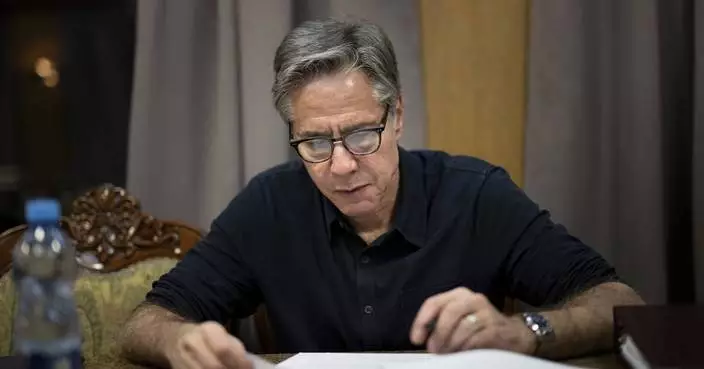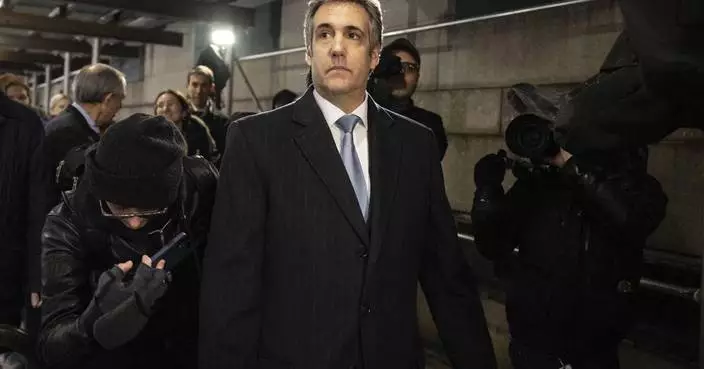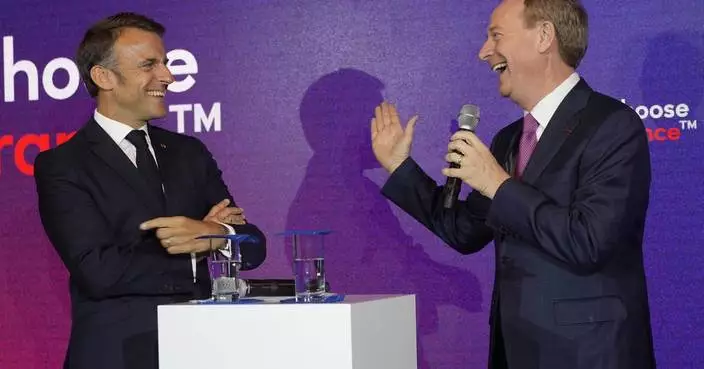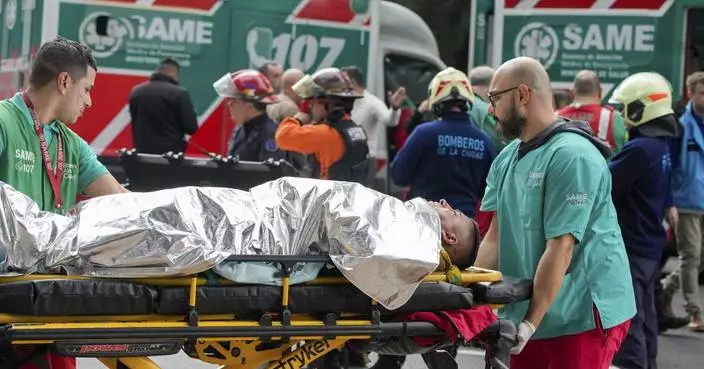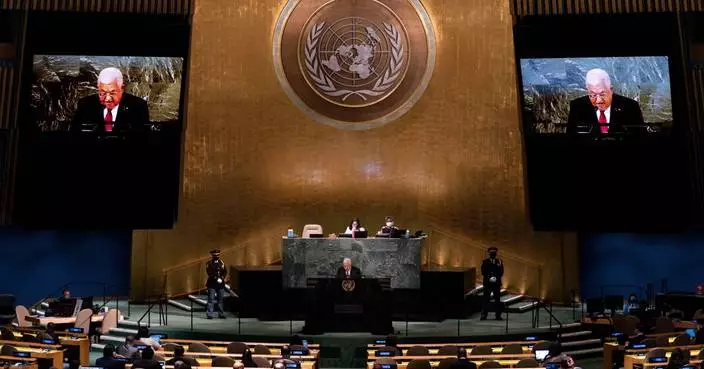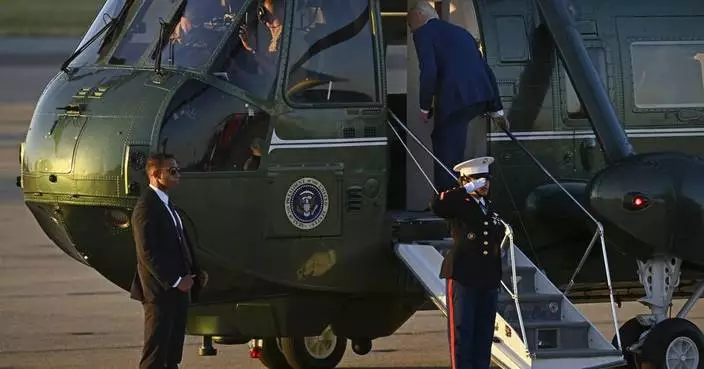The college philosophy teacher accused of entering St. Patrick's Cathedral in Manhattan with gasoline cans, lighter fluid and butane lighters had also booked a hotel just 20 minutes from the Vatican, a New York prosecutor said Wednesday.
Police previously said that Marc Lamparello had booked a flight to Rome for the next day.
Assistant District Attorney David Stuart said during a brief court hearing that Lamparello was "planning to burn down St. Patrick's Cathedral" when he was arrested last week.
The prosecutor made no further remarks about the Rome plans but referred to Lamparello as a flight risk. He said Lamparello had spent "considerable time planning and surveilling" St. Patrick's before his arrest.
Lamparello of Hasbrouck Heights, New Jersey, made his initial court appearance from a hospital. The judge ordered him to undergo a psychiatric evaluation.
The New York incident happened just days after flames ravaged the Notre Dame Cathedral in Paris, a blaze police blamed on an electrical short circuit.
Stuart noted during the brief hearing that Lamparello faces up to 15 years in prison if convicted of attempted arson and reckless endangerment.
He indicated that prosecutors will seek to have Lamparello held on $500,000 bond pending trial.
Lamparello has worked part time at New York City's Lehman College and as an adjunct professor at Seton Hall University in New Jersey.
WASHINGTON (AP) — The Biden administration has told key lawmakers it plans to move forward on a new $1 billion sale of arms and ammunition to Israel, three congressional aides say.
It's the first arms shipment to Israel to be pushed ahead since the administration put another arms transfer, consisting of 3,500 bombs of up to 2,000 pounds each, on hold this month. The Biden administration, citing concern for civilian casualties in Gaza, has said it paused that bomb transfer to keep Israel from using those particular munitions in its offensive in the crowded southern Gaza city of Rafah.
The new package disclosed Tuesday includes about $700 million for tank ammunition, $500 million in tactical vehicles and $60 million in mortar rounds, the congressional aides said. They spoke on condition of anonymity to discuss an arms transfer that has not yet been made public.
The administration's notice to lawmakers this week isn't the final, formal notification before a sale, one of the congressional aides said. It would be an entirely new sale, meaning any weapons may take years to be delivered, the aide said.
Once a transfer is informally notified to Congress, the leaders of the House Foreign Affairs Committee or the Senate Foreign Relations Committee can block it by placing a hold on the package, and the State Department generally will not proceed if that occurs.
The Biden administration has come under criticism from both sides of the political spectrum over its military support for Israel's now seven-month-old war against Hamas in Gaza — at a time when President Joe Biden is battling for reelection against former President Donald Trump.
Some of Biden's fellow Democrats have pushed him to limit transfers of offensive weapons to Israel to pressure the U.S. ally to do more to protect Palestinian civilians. Protests on college campuses around the U.S. have driven home the message this spring.
Republican lawmakers have seized on the administration's pause on the bomb transfers, saying any lessening of U.S. support for Israel — its closest ally in the Middle East — weakens that country as it fights Hamas and other Iran-backed groups. In the House, they are planning to advance a bill this week to mandate the delivery of offensive weaponry for Israel.
Despite the onetime suspension of a bomb shipment, Biden and administration officials have made clear they will continue other weapons deliveries and overall military support to Israel, which is the largest recipient of U.S. military aid.
Biden will see to it that “Israel has all of the military means it needs to defend itself against all of its enemies, including Hamas,” national security spokesman John Kirby told reporters Monday. “For him, this is very straightforward: He’s going to continue to provide Israel with all of capabilities it needs, but he does not want certain categories of American weapons used in a particular type of operation in a particular place. And again, he has been clear and consistent with that.”
The Wall Street Journal first reported the plans for the $1 billion weapons package to Israel.
In response to House Republicans' plan to move forward with a bill to mandate the delivery of offensive weapons for Israel, the White House said Tuesday that Biden would veto the bill if it were to pass Congress.
The bill has practically no chance in the Democratic-controlled Senate. But House Democrats are somewhat divided on the issue, and roughly two dozen have signed onto a letter to the Biden administration saying they were “deeply concerned about the message” sent by pausing the bomb shipment.
One of the letter’s signers, New York Rep. Ritchie Torres, said he would likely vote for the bill, despite the White House’s opposition.
“I have a general rule of supporting pro-Israel legislation unless it includes a poison pill — like cuts to domestic policy,” he said.
In addition to the written veto threat, the White House has been in touch with various lawmakers and congressional aides about the legislation, according to an administration official.
“We strongly, strongly oppose attempts to constrain the President’s ability to deploy U.S. security assistance consistent with U.S. foreign policy and national security objectives,” White House press secretary Karine Jean-Pierre said this week, adding that the administration plans to spend “every last cent” appropriated by Congress in the national security supplemental package that was signed into law by Biden last month.
Associated Press writers Stephen Groves, Lisa Mascaro and Aamer Madhani contributed.

President Joe Biden arrives to speak in the Rose Garden of the White House in Washington, Tuesday, May 14, 2024, announcing plans to impose major new tariffs on electric vehicles, semiconductors, solar equipment and medical supplies imported from China. (AP Photo/Susan Walsh)

President Joe Biden speaks at the Asian Pacific American Institute for Congressional Studies' 30th annual gala, Tuesday, May 14, 2024, in Washington. (AP Photo/Alex Brandon)





